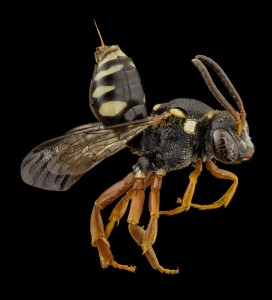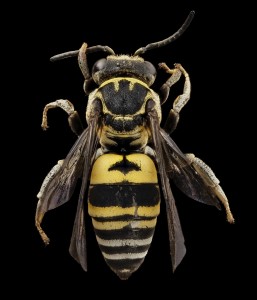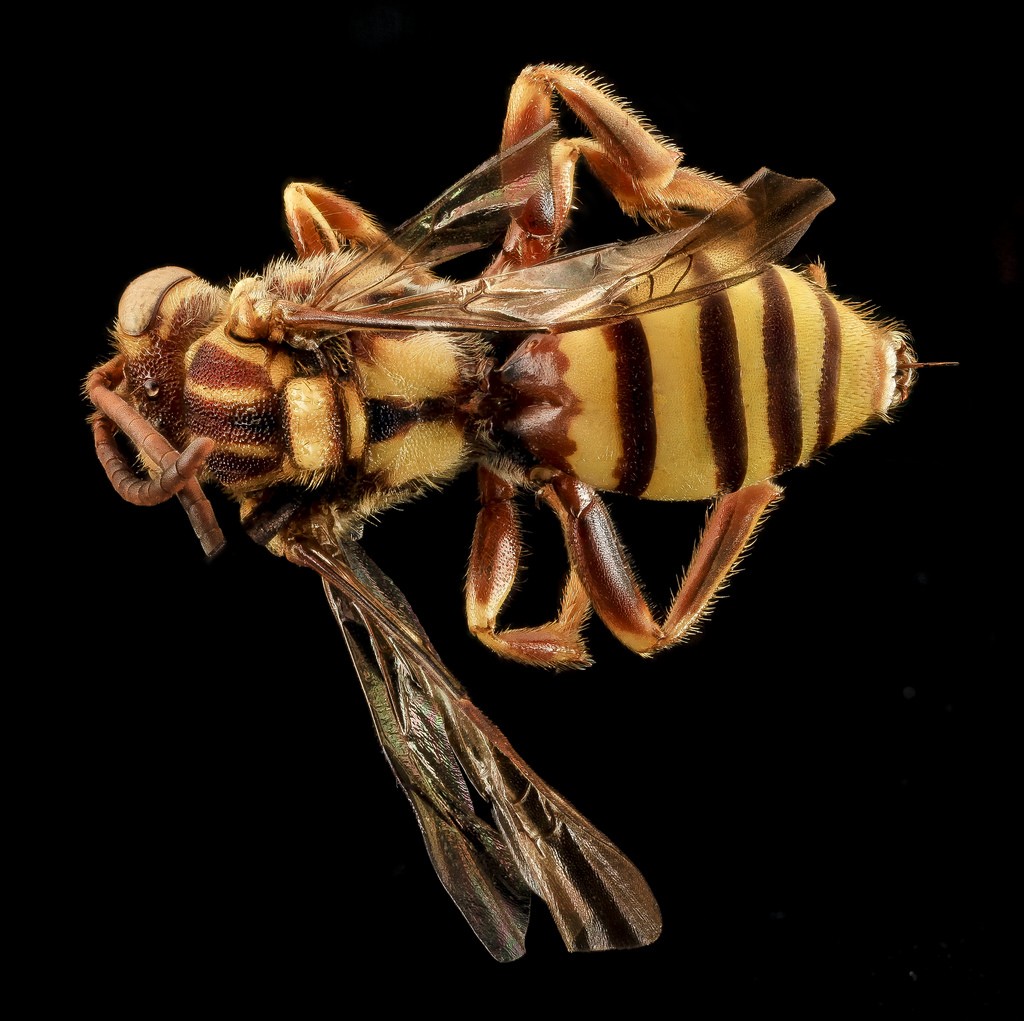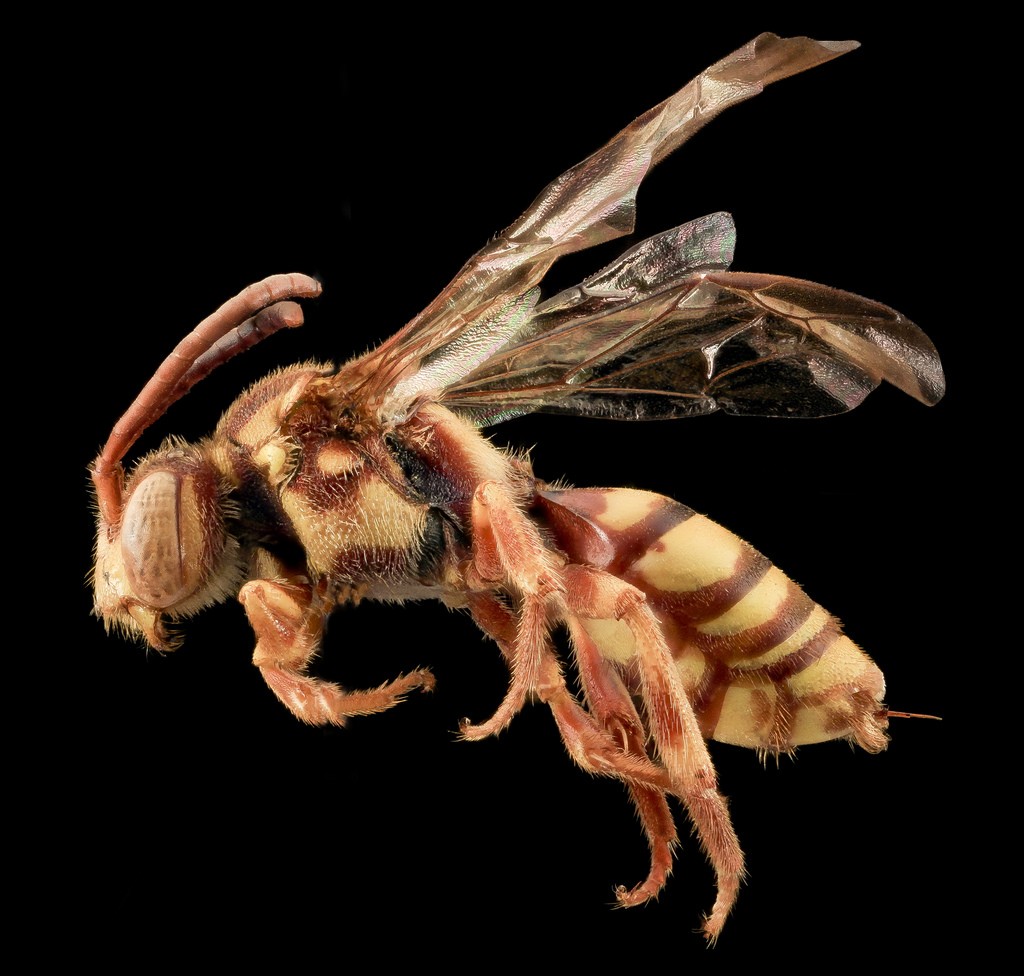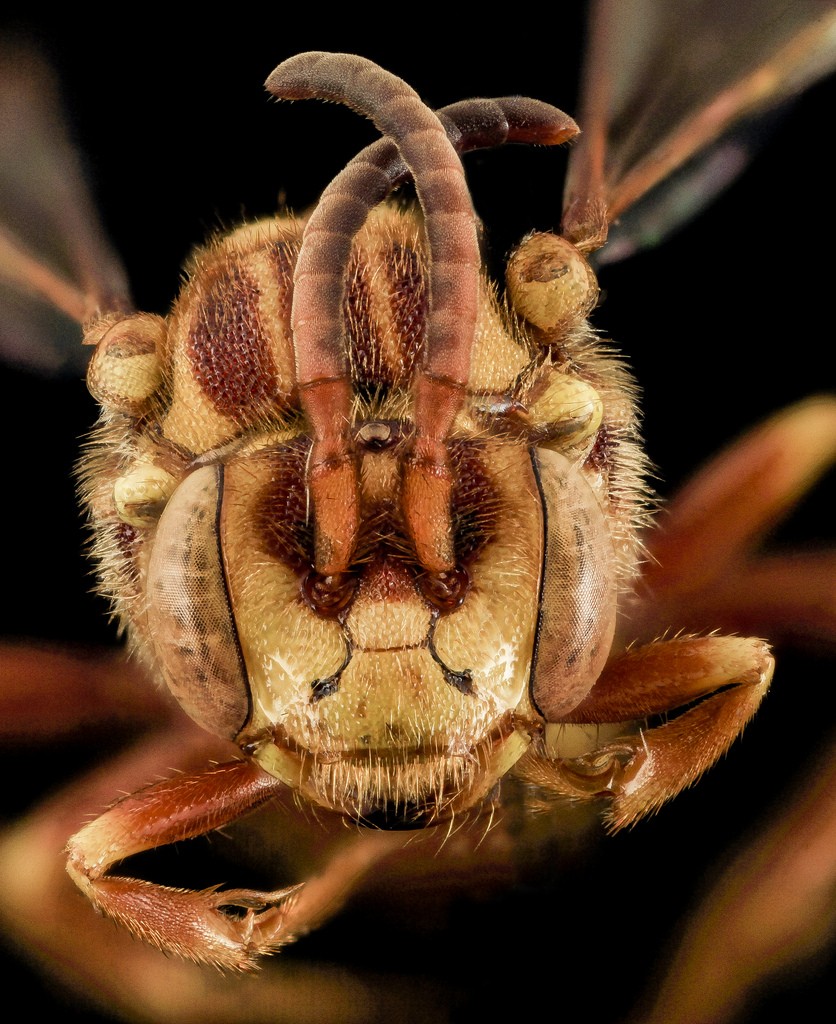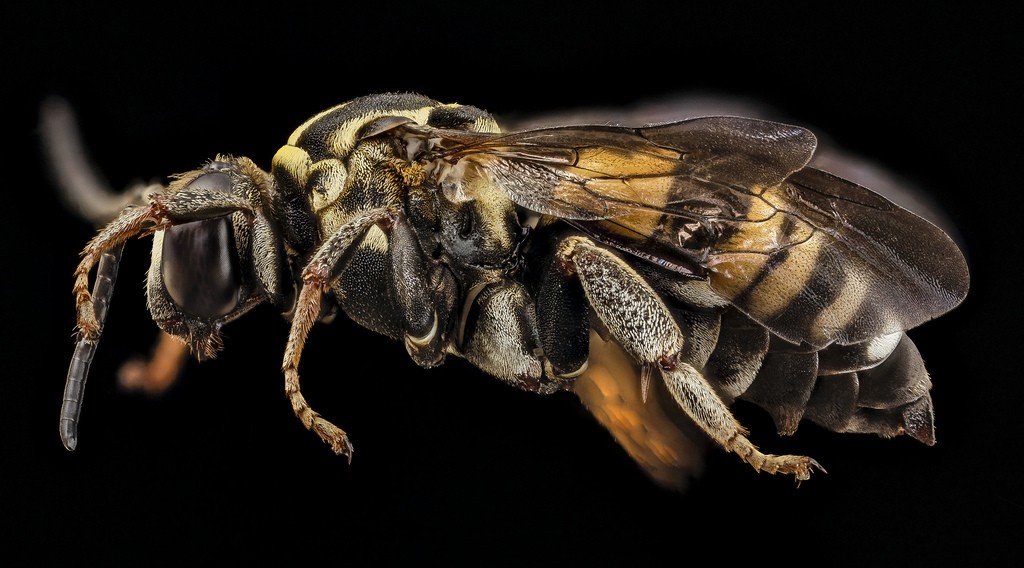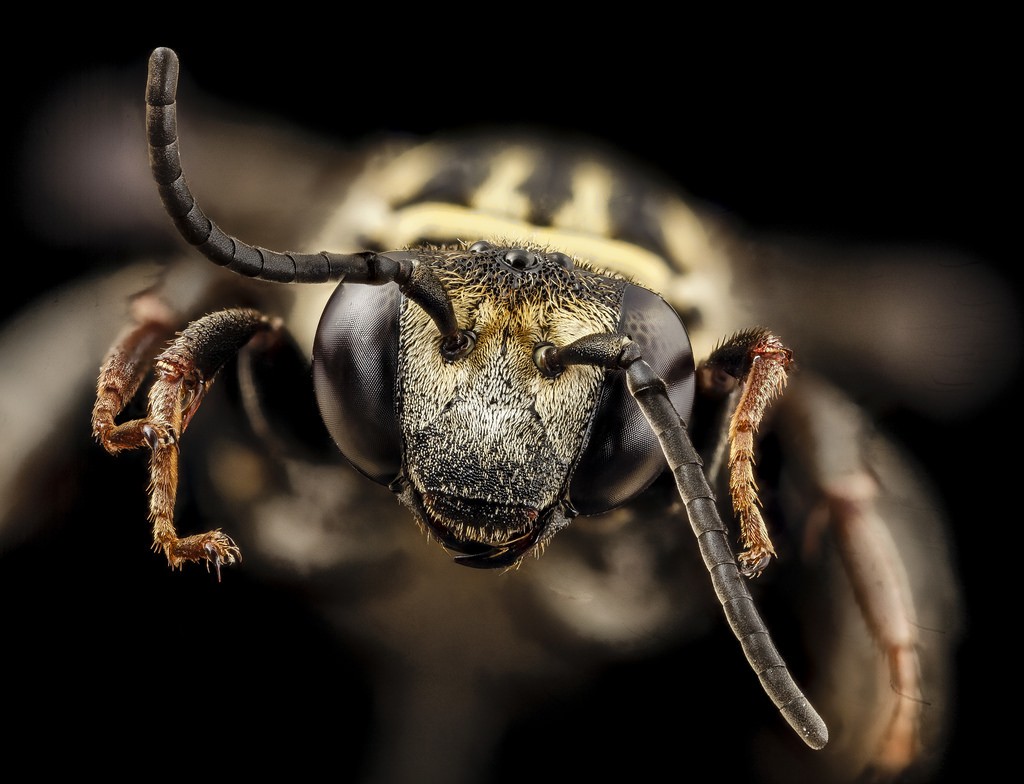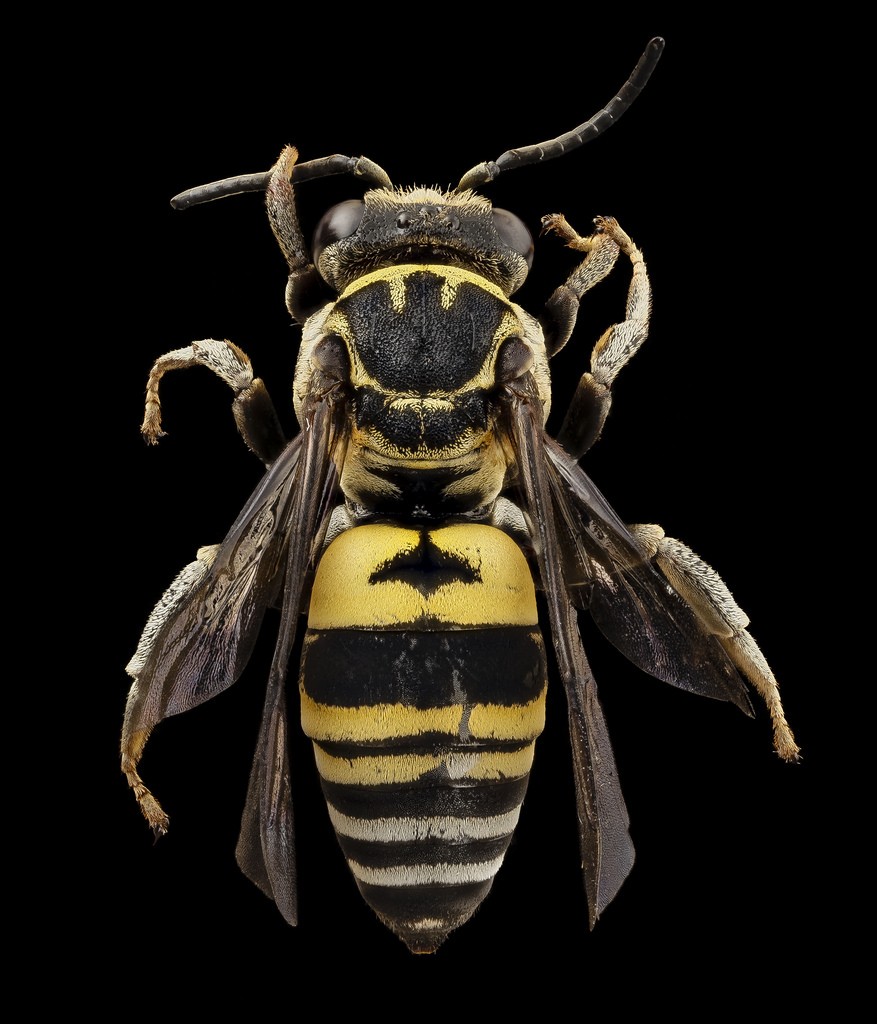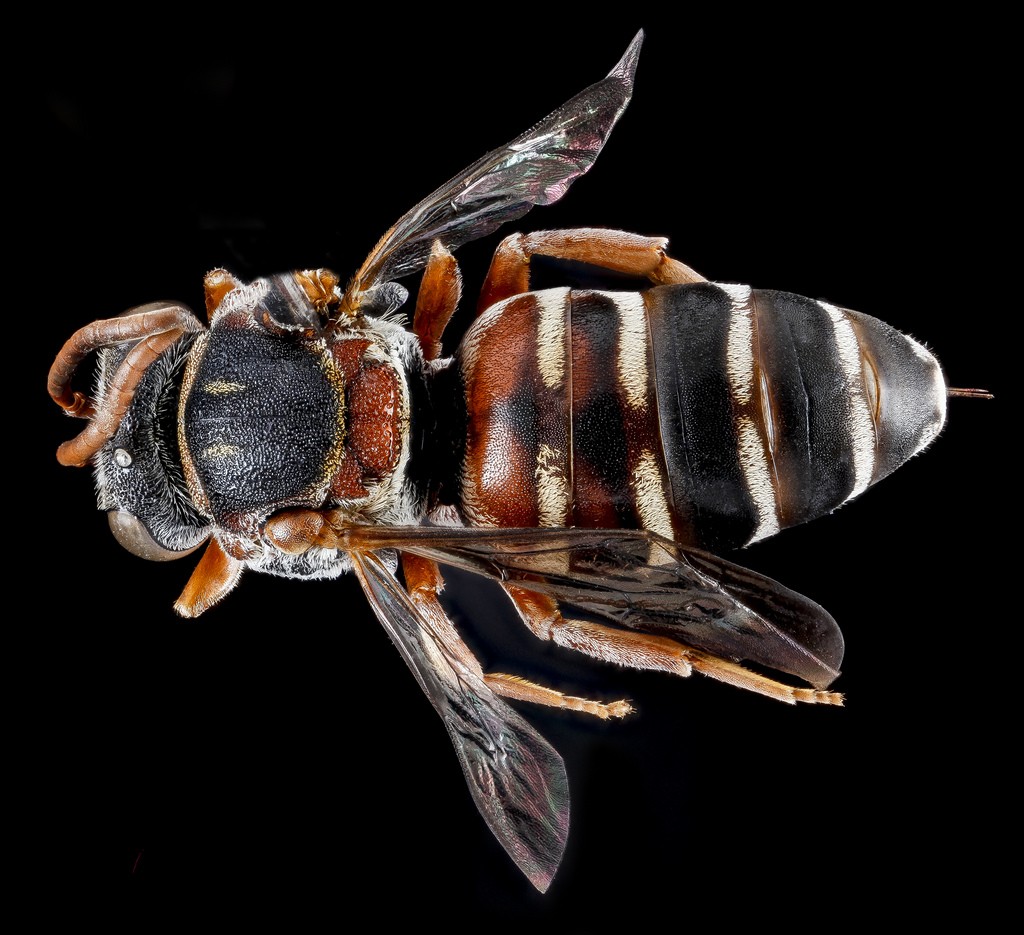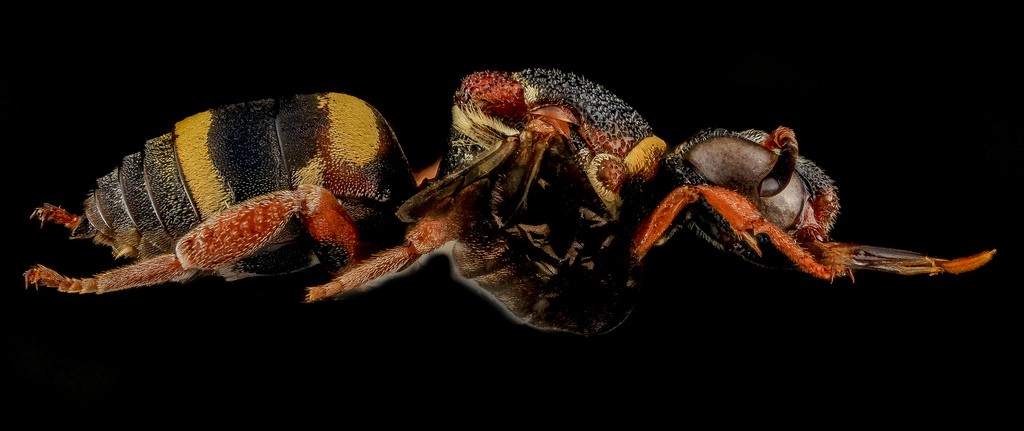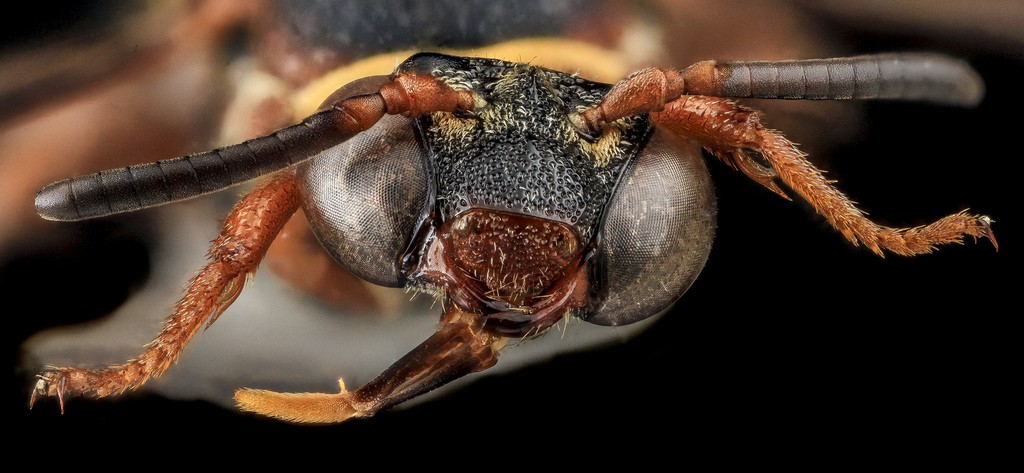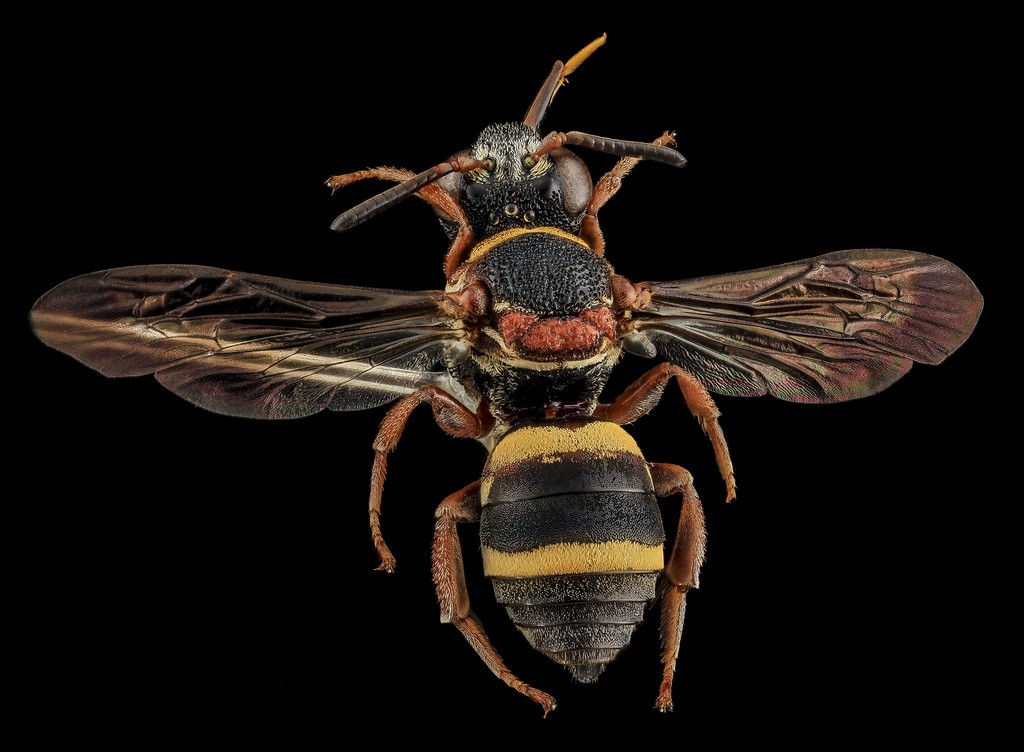Cuckoo Bees (Genera: Nomada, Triepeolus, and Epeolus)
Cuckoo bees consist of several lineages of bees that have evolved as kleptoparasites, meaning that cuckoo bees lay their eggs in the nests of other host bees. The host bee’s eggs are killed and replaced. Cuckoo bees are nearly hairless and have evolved not to carry pollen.
Size: Medium to Large (7mm-14mm) {Size Comparison – the average honeybee is 13 mm}
Color: Vividly colored with yellow, red, black, white, and orange exoskeletons (Nomada), OR vividly patterned by blue, red, black and white very fine fuzz (Triepeolus/Epeolus)
Type of Flight: Floating flight; commonly hovers over collections of other bees. Nomada often seen on flowers; Triepeolus/Epeolus rarely seen
Distinguishing Characteristics:
(1) Wasp- like. Little to no hair, vividly colored bodies
(2) Females possess no specialized pollen carrying hairs (scopa)
(3) Females and males both possess long and thick antenna (for finding host bees)
Abundance in Georgia: Nomada – Common; Triepeolus/Epeolus – Rare
Typically Found in Georgia: March to May (Nomada); June to October (Triepolis/Epolis)
Pollination Value: None
Plants Associated with: None
Nesting Habitat: These bees use the nests of other bees to lay their eggs. Each species of cuckoo bee is very host-specific, but generally species of Nomada prefer species of mining bees; Triepeolus/Epeolus species typically parasitize species of long-horned bees.
Classification: Family: Apidae Genus: Nomada or Triepeolus or Epeolus
Number of Species in Georgia: Nomada 43; Triepeolus 20; Epeolus 12
Number of Species in the U.S.: Nomada 282; Triepeolus 107; Epeolus 44
Photos taken by Sam Droege and staff at the USGS Bee Inventory and Monitoring Laboratory (Used with permission)
–> Click on the photo to enlarge the image
.
